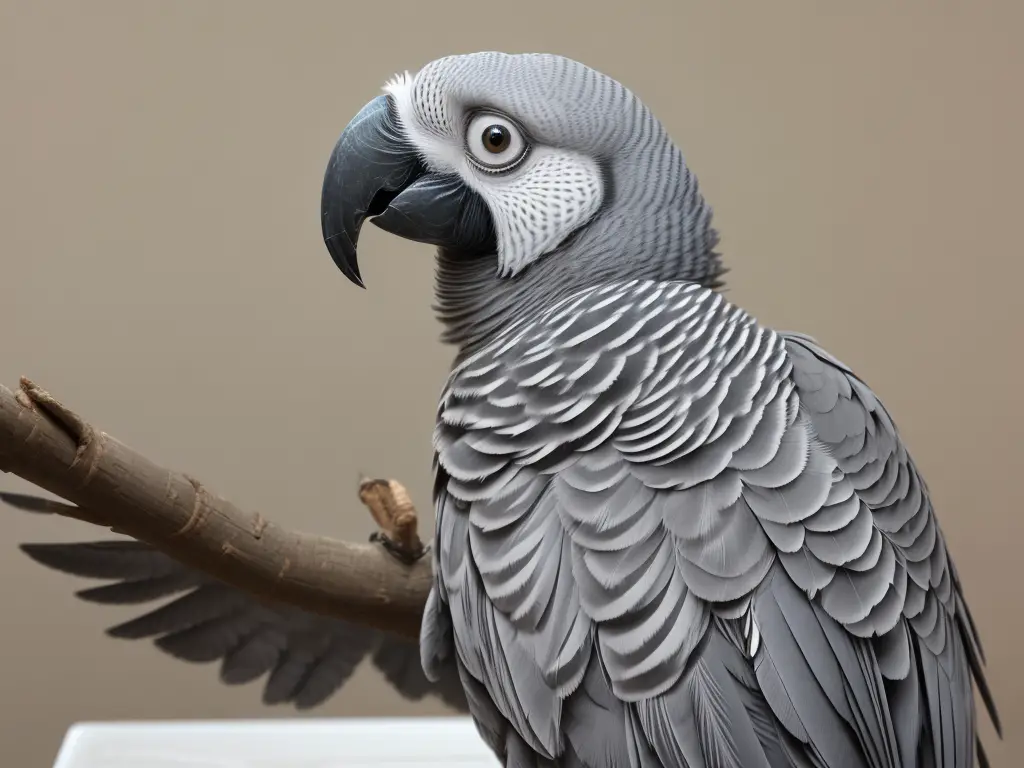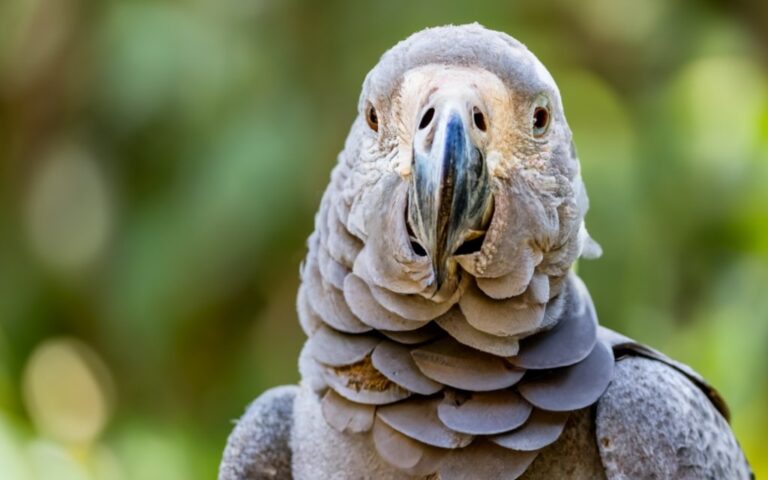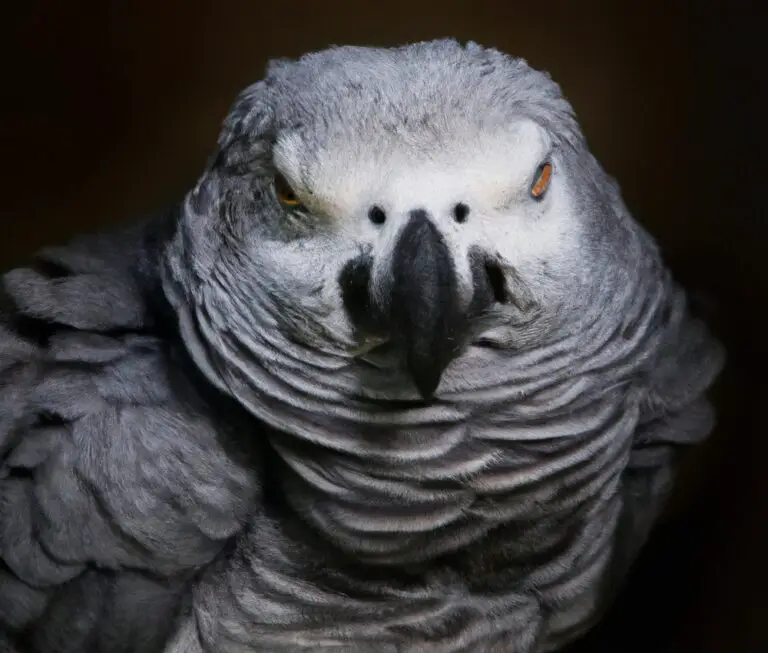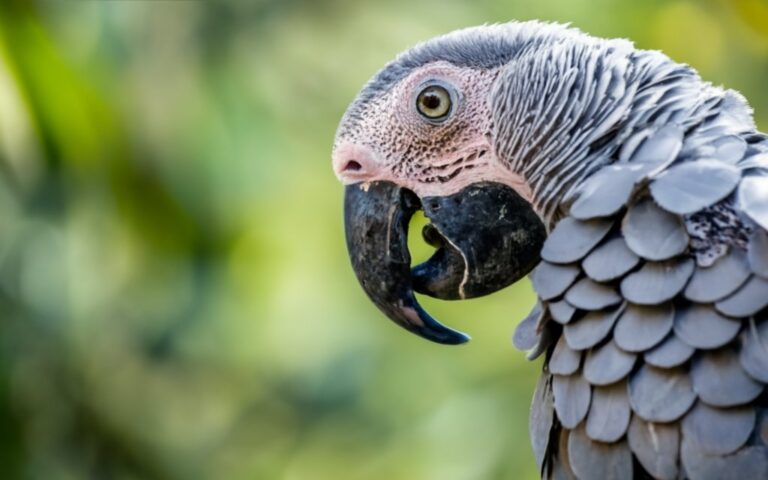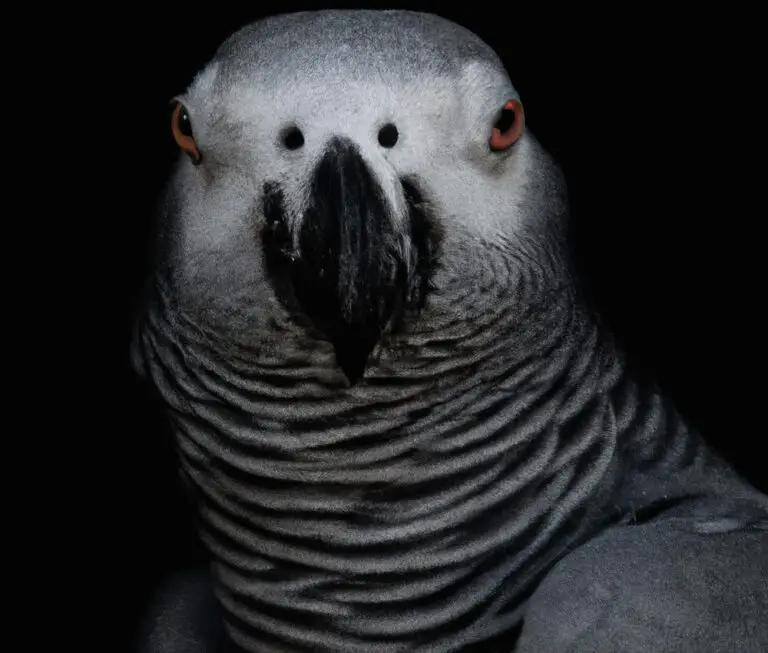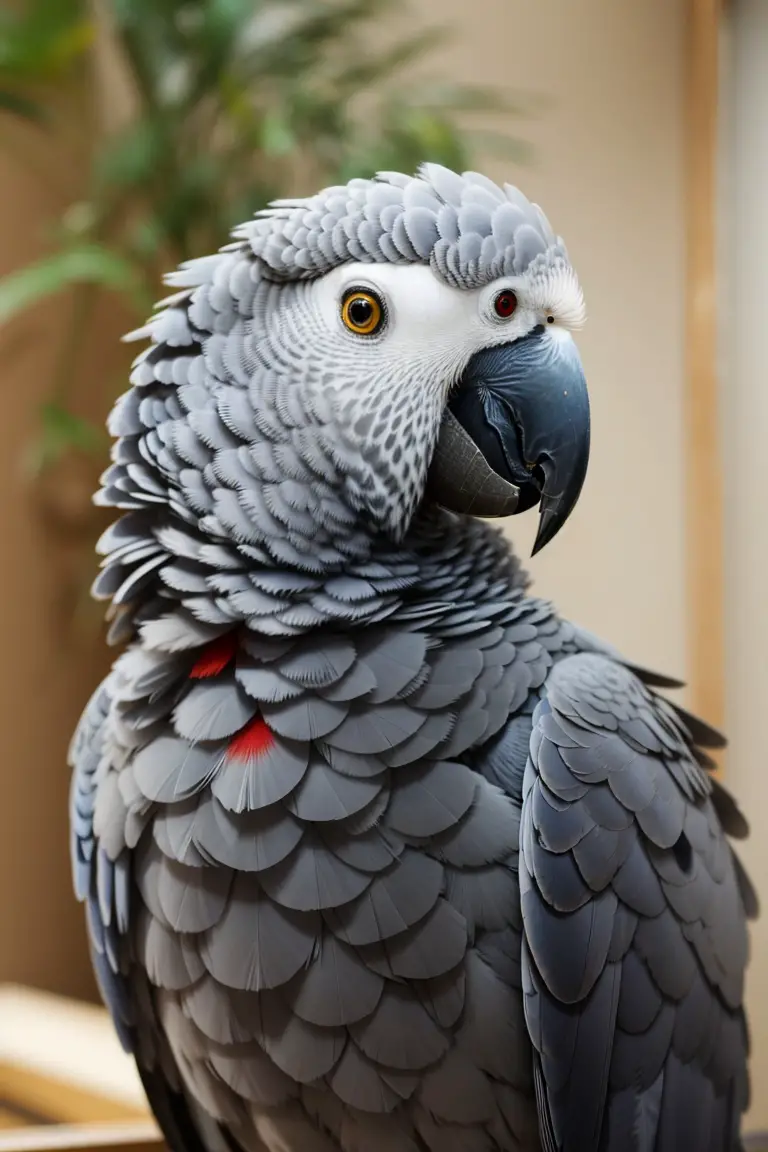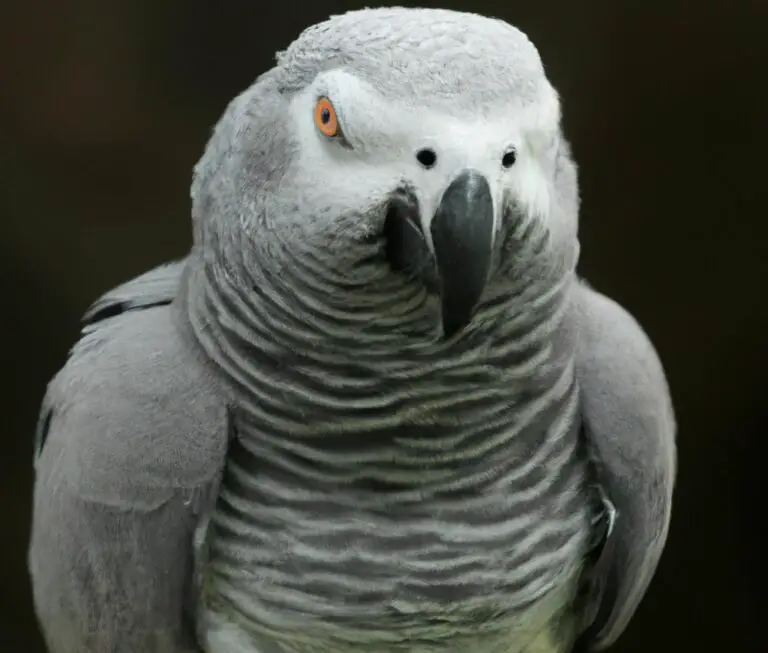Do African Grey Parrots Make Good Pets?
Key Takeaways:
- African grey parrots are highly intelligent and have the ability to mimic speech, making them popular as pets.
- However, African grey parrots require a lot of mental stimulation and attention to thrive in captivity.
- It is important to provide African grey parrots with a proper diet and a spacious environment to prevent boredom and behavioral issues.
- Potential pet owners should be prepared for a long-term commitment as African grey parrots can live up to 50 years in captivity.
Are you considering adding a feathered friend to your family?
Look no further than the African grey parrot! These magnificent birds are known for their incredible intelligence, ability to mimic speech, and unique personalities.
But before you rush out to bring one home, it’s essential to understand the pros and cons of owning an African grey parrot.
From their social and emotional needs to the commitment required for their long lifespan, there are several factors to consider.
In this article, we’ll explore everything you need to know about African grey parrots as pets, including their physical characteristics, natural habitat, care requirements, and how to create the perfect environment for them.
So, if you’re ready to embark on a rewarding journey with a fascinating avian companion, let’s dive in!
| Pros | Cons |
| Intelligent and trainable | Long lifespan (up to 60 years) |
| Can mimic human speech and sounds | Requires a lot of mental stimulation |
| Bond closely with their owners | Potential for behavioral issues if not properly socialized |
| Can learn tricks and perform complex tasks | Expensive initial cost and ongoing care |
| Interactive and playful | Can be loud and noisy |
| Can develop a wide vocabulary | May require a specialized diet |
Understanding African Grey Parrots
African Grey Parrots are fascinating creatures that require a deep understanding to ensure their well-being as pets.
Physical Characteristics of African Grey Parrots
African Grey Parrots are medium-sized birds that have a striking appearance.
They typically have a gray plumage with a bright red tail.
They have a large head, strong beak, and piercing eyes.
These parrots have a wingspan of about 18-20 inches and can weigh between 14-22 ounces.
Their feet are made for perching, with two toes pointing forward and two pointing backward.
They are known for their incredible ability to mimic speech and their high level of intelligence.
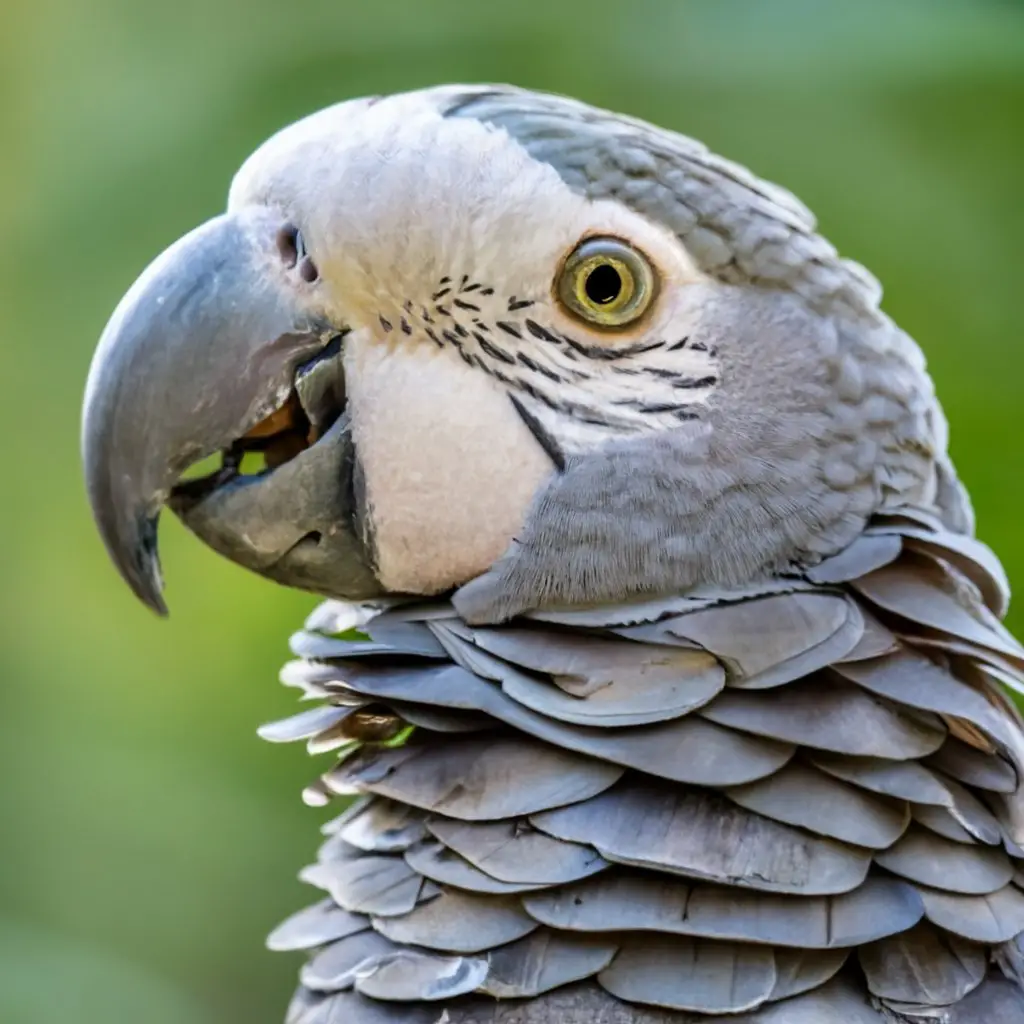
Natural Habitat and Behavior of African Grey Parrots
African Grey Parrots are native to the rainforests and savannahs of West and Central Africa.
They are highly intelligent and social birds, often forming strong bonds with their owners.
They have a complex vocal repertoire and can mimic human speech.
These parrots are known for their problem-solving abilities and are active, playful, and curious.
In the wild, they forage for food, socialize with other parrots, and engage in various behaviors like bathing and preening.
Maintaining a stimulating environment and providing plenty of mental and physical exercise is essential for their well-being.
Lifespan and Care Requirements of African Grey Parrots
African Grey Parrots have a long lifespan, ranging from 40 to 60 years in captivity. They require a lot of care and attention to thrive.
Daily interaction, mental stimulation, and a balanced diet are crucial for their well-being.
Providing a large cage, proper lighting, and regular veterinary check-ups are also important for their care.
The Pros and Cons of Owning an African Grey Parrot
Owning an African Grey Parrot has its benefits and challenges.
Intelligence and Ability to Mimic Speech
African Grey parrots are known for their high intelligence and exceptional ability to mimic speech. They have large vocabularies and can learn to understand and communicate in a way that is truly remarkable.
Their ability to mimic sounds, including human speech, is one of the main reasons why they are such popular pets.
It’s important to remember that not all African Greys will talk, as this skill can vary from bird to bird. But with patience, training, and socialization, many African Greys can become skilled talkers and entertainers.
Just be prepared for some unexpected and amusing conversations with your feathered friend!
Social and Emotional Needs
African Grey parrots are highly social creatures and require a lot of attention and companionship. They thrive on interaction with their human caregivers and can become quite attached to them.
It is important to spend quality time with your parrot, engage in play, and provide opportunities for mental stimulation.
They can also benefit from socializing with other pets and members of the family. Neglecting their social and emotional needs can lead to behavioral issues and even depression.
Long Lifespan and Commitment Required
African Grey Parrots have a long lifespan, often living up to 50-60 years. This means that they are a long-term commitment, requiring care and attention for several decades.
They are intelligent, social creatures that need plenty of mental stimulation and interaction to thrive.
Make sure you’re ready for the long haul before bringing one into your life!
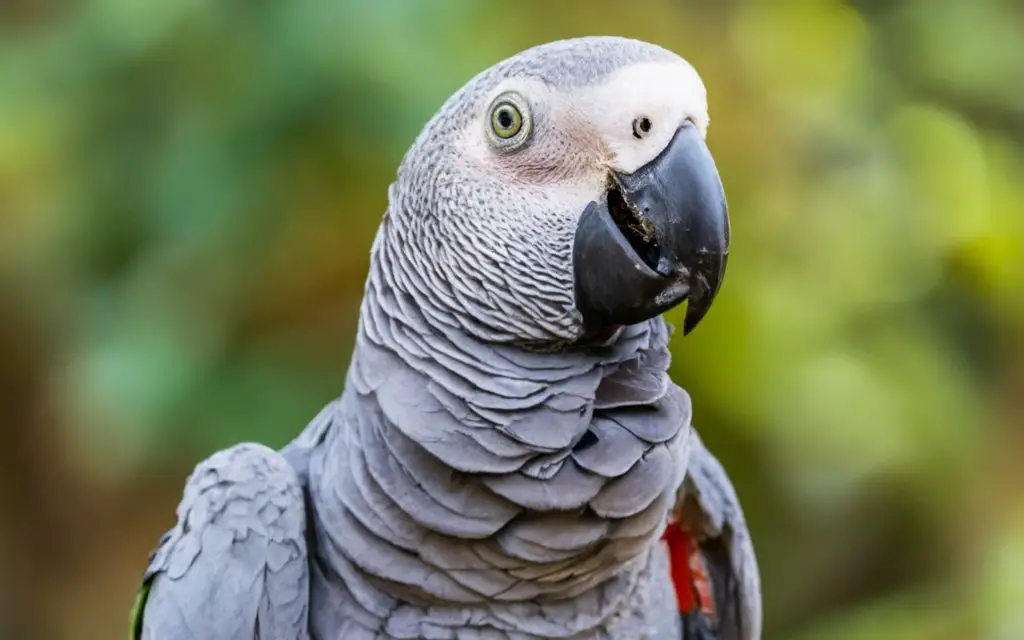
Factors to Consider Before Getting an African Grey Parrot
Before getting an African Grey Parrot, there are a few factors you should consider.
Time and Attention Requirements
African Grey Parrots require a significant amount of time and attention from their owners. They are highly intelligent and social birds that need daily interaction and mental stimulation.
It is important to spend several hours each day engaging with your parrot through playtime, training, and socializing.
Neglecting these needs can lead to behavioral issues and unhappiness.
Noise Level and Potential Behavior Problems
African Grey parrots can be noisy, especially during morning and evening hours.
They are known to mimic sounds, including doorbells, phones, and even the sound of a vacuum.
However, with proper training and socialization, you can minimize the noise level.
It’s important to note that African Grey parrots may also develop behavior problems such as feather plucking and aggression if they don’t receive enough mental stimulation and attention.
Providing them with toys, regular exercise, and social interaction can help prevent these issues.
Financial Considerations for Owning a Parrot
Financial considerations for owning a parrot include the initial cost of purchasing the bird, which can range from a few hundred to several thousand dollars depending on the species.
Ongoing expenses include providing a proper diet, veterinary care, toys, and cage maintenance.
It’s important to budget for these expenses as well as for unexpected costs that may arise.
Additionally, parrots have long lifespans, so you should be prepared for the financial commitment of caring for a bird for many years.
Creating the Perfect Environment for Your African Grey Parrot
To create the perfect environment for your African Grey Parrot, focus on cage size and perching material.
Cage Size and Perching Material
Cage Size: African Grey Parrots need a spacious cage to move around and stretch their wings. A minimum cage size of 36 inches wide, 24 inches deep, and 48 inches tall is recommended.
Make sure the bars are spaced closely together to prevent escape.
Perching Material: Provide a variety of perching options in the cage, including natural wood branches of different sizes. This will help your parrot exercise their feet and prevent foot problems.
Avoid using sandpaper or dowel perches, as they can cause discomfort and foot deformities.
Proper Lighting and Temperature
Proper lighting and temperature are essential for the well-being of African Grey parrots.
A full-spectrum light that mimics natural sunlight is crucial for their mental and physical health.
The temperature should be maintained between 70-80°F (21-27°C) to ensure their comfort.
Avoid drafts and direct sunlight to prevent overheating or chilling.
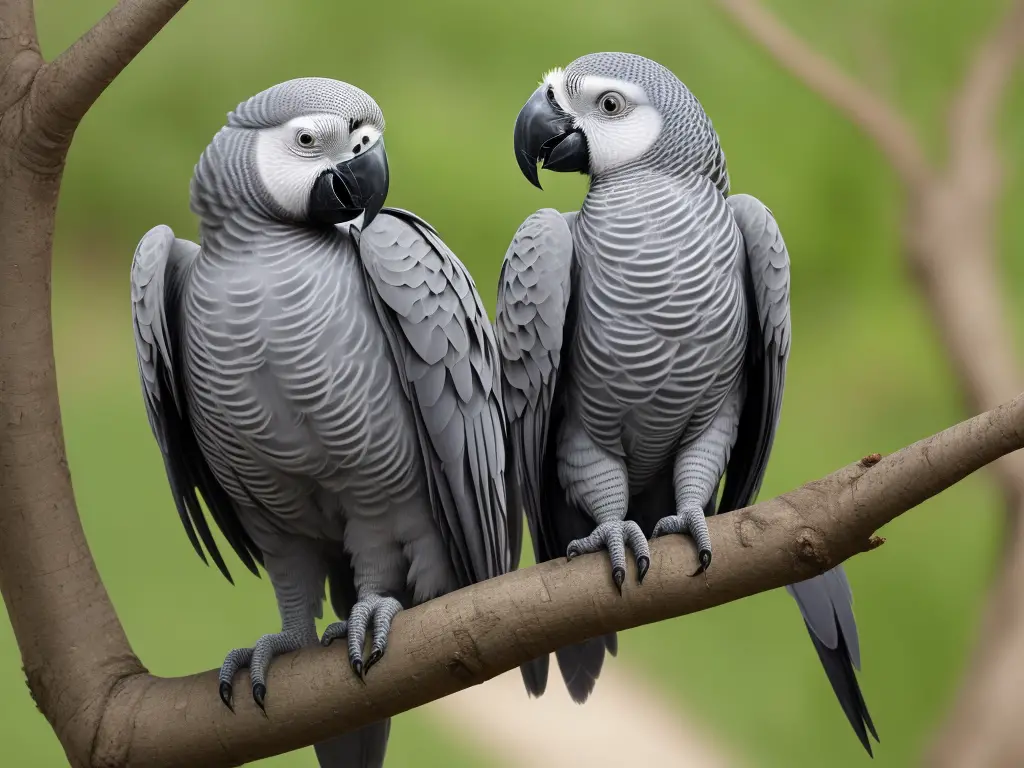
Enrichment Toys and Mental Stimulation
Enrichment toys and mental stimulation are essential for African Grey Parrots. They have a high level of intelligence and need mental engagement to prevent boredom and behavioral issues.
Providing puzzle toys, foraging toys, and interactive toys can keep them entertained.
Rotation of toys and introducing new ones will keep their mental stimulation.
Feeding and Nutrition for African Grey Parrots
Feeding and Nutrition for African Grey Parrots: Providing a balanced diet and avoiding certain foods is essential for keeping your African Grey Parrot healthy and hydrated.
Balanced Diet: Seeds, Pellets, and Fresh Fruits/Vegetables
A balanced diet for African Grey Parrots includes a mix of seeds, pellets, and fresh fruits/vegetables.
Seeds provide essential fats and protein while pellets ensure adequate nutrition.
Fresh fruits/vegetables offer vitamins and minerals.
Incorporate variety and avoid high-fat seeds as the primary food source.
Food to Avoid and Toxic Substances
African grey parrots should avoid certain foods, as they can be harmful to their health.
Avoid giving them caffeine, alcohol, chocolate, avocado, sugary foods, high-salt foods, and foods with artificial sweeteners.
Also, never give them toxic substances like pesticides, household cleaners, or tobacco smoke.
Stick to a diet of balanced seeds, pellets, and fresh fruits and vegetables.
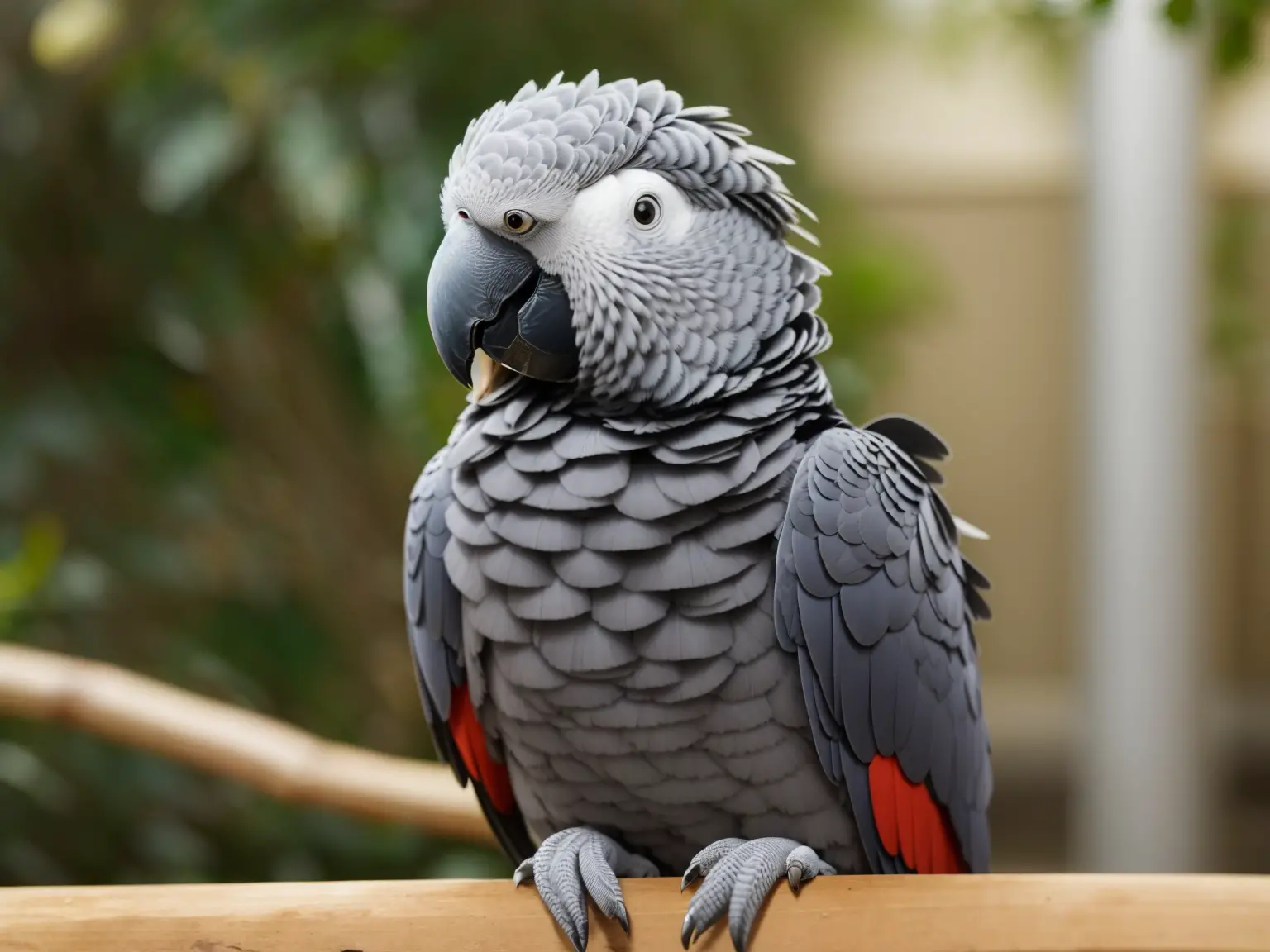
Maintaining Hydration and Water Requirements
To maintain hydration and meet the water requirements of African Grey Parrots, it is essential to provide them with fresh, clean water at all times.
Make sure to change the water daily to prevent bacteria growth.
Additionally, you can mist their feathers with water to help them stay hydrated.
Avoid offering sugary or flavored drinks as they can be harmful to their health.
Finally, monitor their water intake to ensure they are getting enough hydration.
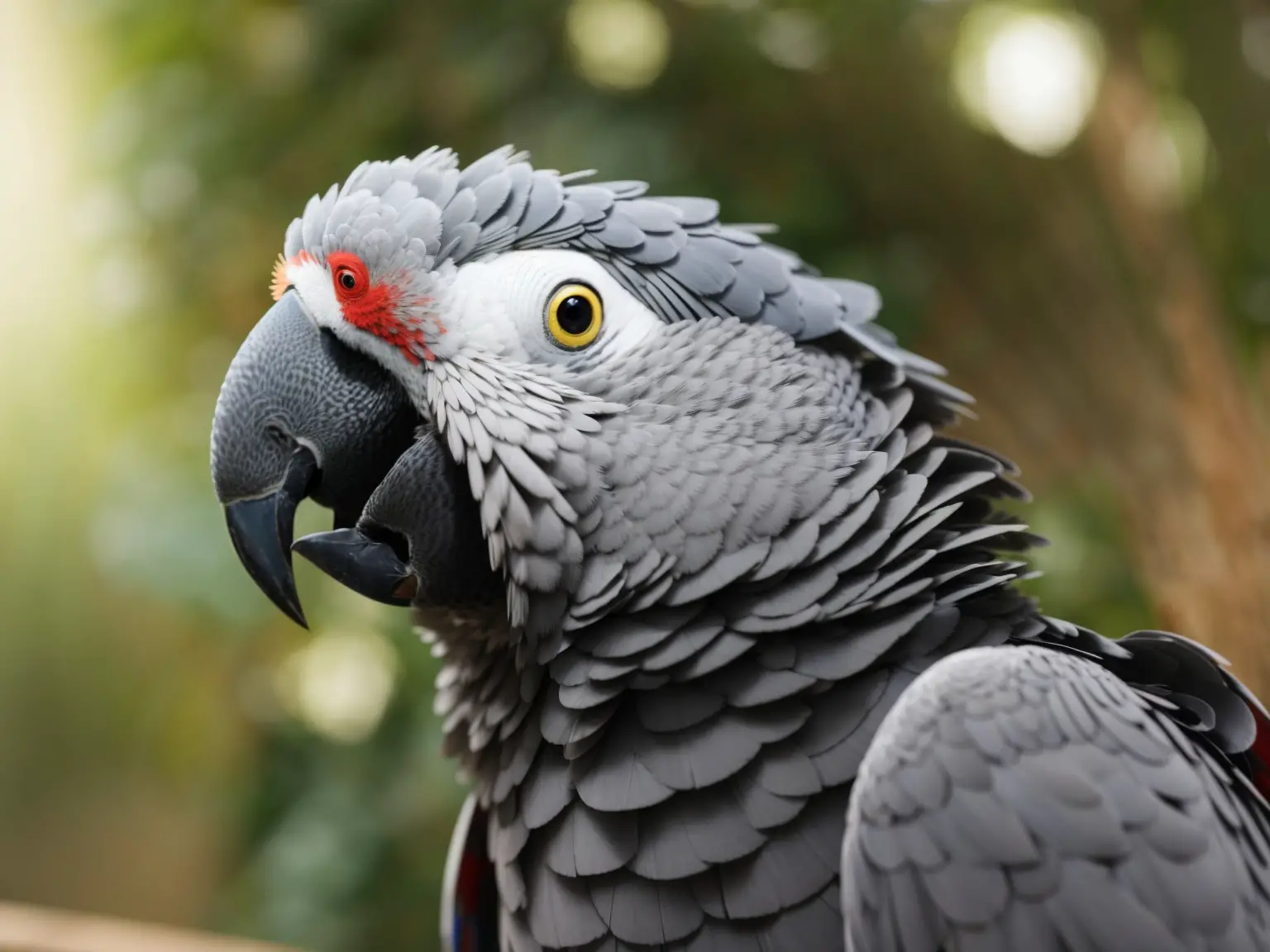
Training and Socializing Your African Grey Parrot
Training and socializing your African Grey Parrot is essential for a well-behaved and happy pet.
Positive Reinforcement Techniques
Positive reinforcement techniques are essential when training your African Grey Parrot.
Here are a few effective strategies to encourage good behavior:
- Use treats: Reward your parrot with his favorite treats whenever he follows a command or exhibits desirable behavior.
- Clicker training: Pair a clicker sound with a treat to mark the desired behavior. Eventually, the sound alone will serve as a positive reinforcer.
- Verbal praise: Use a happy and encouraging tone to praise your parrot whenever he does something right. Positive words and affectionate gestures go a long way!
- Consistency: Be consistent in rewarding your parrot for desired behaviors. This helps him understand what actions earn rewards and reinforces positive habits.
Remember that positive reinforcement focuses on rewarding good behavior rather than punishing bad behavior.
By using these techniques, you can effectively communicate with and train your African Grey Parrot in a positive and rewarding way.
Teaching Basic Commands and Tricks
Teaching basic commands and tricks to your African Grey Parrot can be a fun and rewarding experience. Start with simple commands like “step up” and “step down” using positive reinforcement.
Gradually introduce more complex tricks like waving or retrieving objects.
Patience and consistency are key to successful training.
Encouraging Interactions with Family and Other Pets
To encourage interactions between your African Grey Parrot and other family members or pets, start by creating a safe and supervised environment. Allow supervised interactions with family members who are calm and gentle.
Slowly introduce your parrot to other pets, always monitoring their interactions.
Gradually increase the time they spend together, ensuring positive experiences for everyone involved.
Health and Veterinary Care for African Grey Parrots
Taking care of the health of your African Grey parrot is essential for their well-being and happiness.
Common Health Issues and Preventative Measures
Common health issues in African Grey Parrots include respiratory infections, Psittacine beak and feather disease, feather plucking, and proventricular dilatation disease.
To prevent these, provide a balanced diet, maintain a clean environment, and avoid exposure to toxins.
Regular vet check-ups are essential.
Regular Check-ups and Vaccination Schedule
Regular check-ups and vaccinations are essential for the health and well-being of your African Grey parrot. Consult with an avian veterinarian to establish a schedule for routine examinations, including physical exams, blood work, and fecal tests.
Vaccinations, such as those for avian influenza and polyomavirus, may also be recommended to protect against common diseases.
Regular check-ups and vaccinations will help ensure that your African Grey parrot stays healthy and happy for years to come.
Tips for a Happy and Well-Adjusted African Grey Parrot
To ensure your African Grey parrot is happy and well-adjusted, focus on daily exercise and mental stimulation, creating a bond through quality time, and encouraging natural behaviors and problem-solving.
Daily Exercise and Mental Stimulation
Daily exercise and mental stimulation are essential for the overall well-being of African Grey Parrots.
Provide plenty of opportunities for physical exercise, such as flying time outside the cage and climbing on safe perches.
Additionally, engage their intelligent minds by offering puzzle toys, interactive games, and regular training sessions to keep them mentally stimulated.
Creating a Bond through Quality Time
Creating a bond with your African Grey Parrot is all about spending quality time together.
This means interacting with them on a regular basis and engaging in activities that they enjoy.
Some ways to do this include talking to them, teaching them tricks or commands, providing them with mental stimulation through toys or puzzles, and simply spending time in each other’s company.
Remember, building a bond takes time and patience, but the rewards are worth it!
Encouraging Natural Behaviors and Problem Solving
To encourage natural behaviors and problem-solving in your African Grey Parrot, provide plenty of mental stimulation through toys, puzzles, and foraging activities.
Offer a variety of perches and climbing opportunities to mimic their natural habitat.
Encourage problem-solving by introducing new toys and regularly rotating their environment.
Reward and praise them when they engage in natural behaviors like exploring, problem-solving, and playing.
Frequently Asked Questions
Are African Grey Parrots loud?
Are African Grey Parrots loud? Yes, African Grey Parrots can be quite vocal.
They have the ability to mimic sounds and speech, so they may imitate household noises or repeat phrases they have learned.
However, not all African Greys are loud, and some individuals may be quieter than others. It’s important to provide them with proper mental stimulation and social interaction to prevent excessive noise.
How long do African Grey Parrots live?
African Grey Parrots have a long lifespan, typically living between 40 to 60 years in captivity. With proper care, some parrots have even been known to live beyond 60 years.
Their longevity makes them a lifelong commitment, so be prepared for a long-term relationship with your feathered friend.
Can African Grey Parrots talk?
Yes, African Grey Parrots can talk! They are highly intelligent and known for their ability to mimic speech.
The Grey Parrot has a remarkable vocal range and can learn a wide variety of words and phrases.
With consistent training and socialization, they can become excellent talkers and entertainers!
Are African Grey Parrots good pets for families with children?
African Grey Parrots can make good pets for families with children, but there are a few things to keep in mind. These parrots are highly intelligent and require mental stimulation, time, and attention.
Some may not tolerate rough handling, so children need to be gentle.
Supervision is crucial to ensure a safe and positive interaction between the parrot and children. It’s important to teach kids about respecting the bird’s space, and involve them in the parrot’s care to foster a positive bond.
Final Verdict
African Grey parrots can make wonderful pets for the right person or family. They are highly intelligent, social, and can mimic speech, making them fascinating companions.
However, owning an African Grey parrot requires a significant commitment of time, attention, and resources.
Their long lifespan means that they require long-term care and companionship. Before getting an African Grey parrot, consider the time and financial implications, as well as the need for a suitable environment, proper training, and veterinary care.
With the right care and attention, an African Grey parrot can bring joy and companionship for many years to come.

